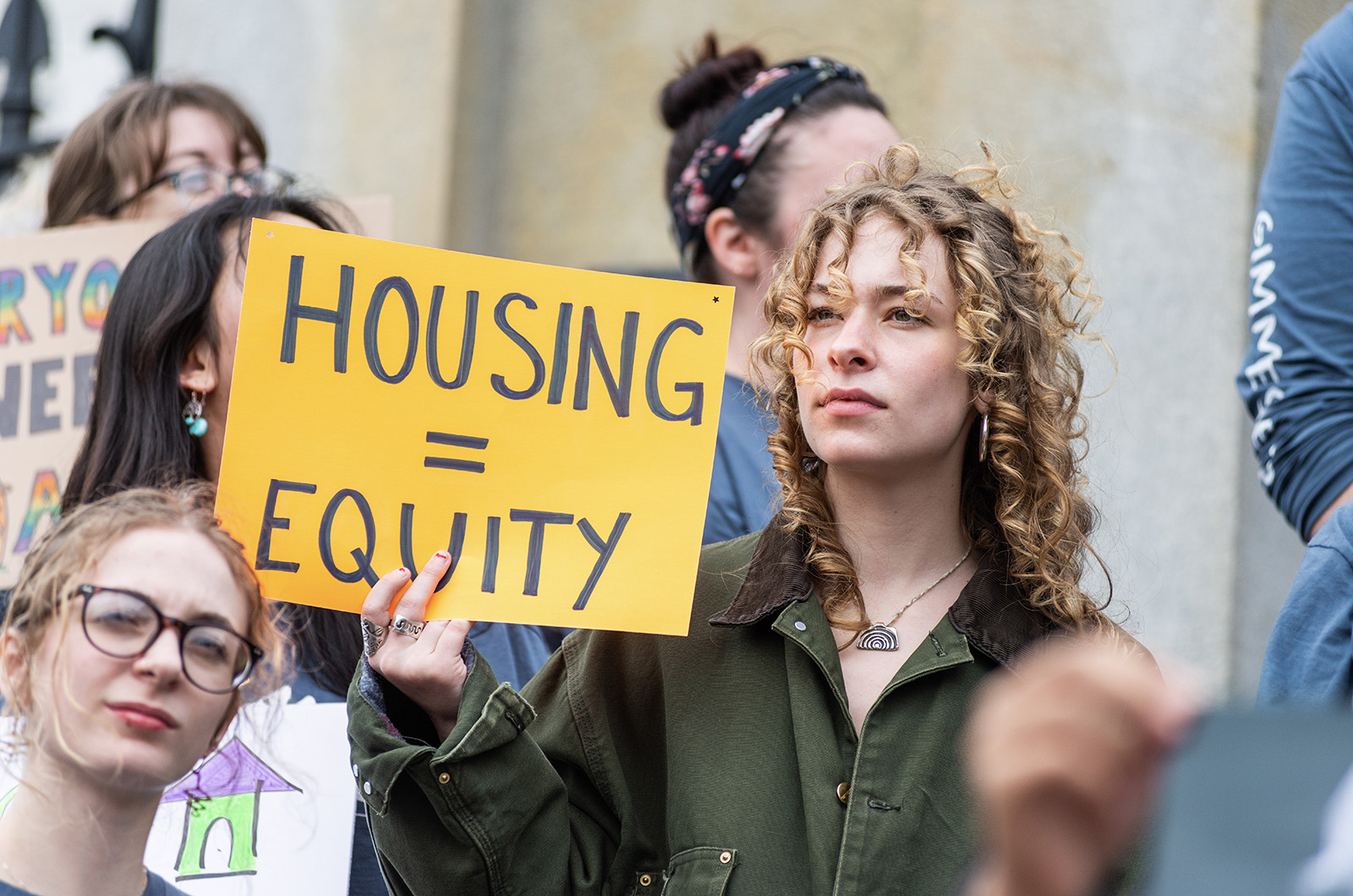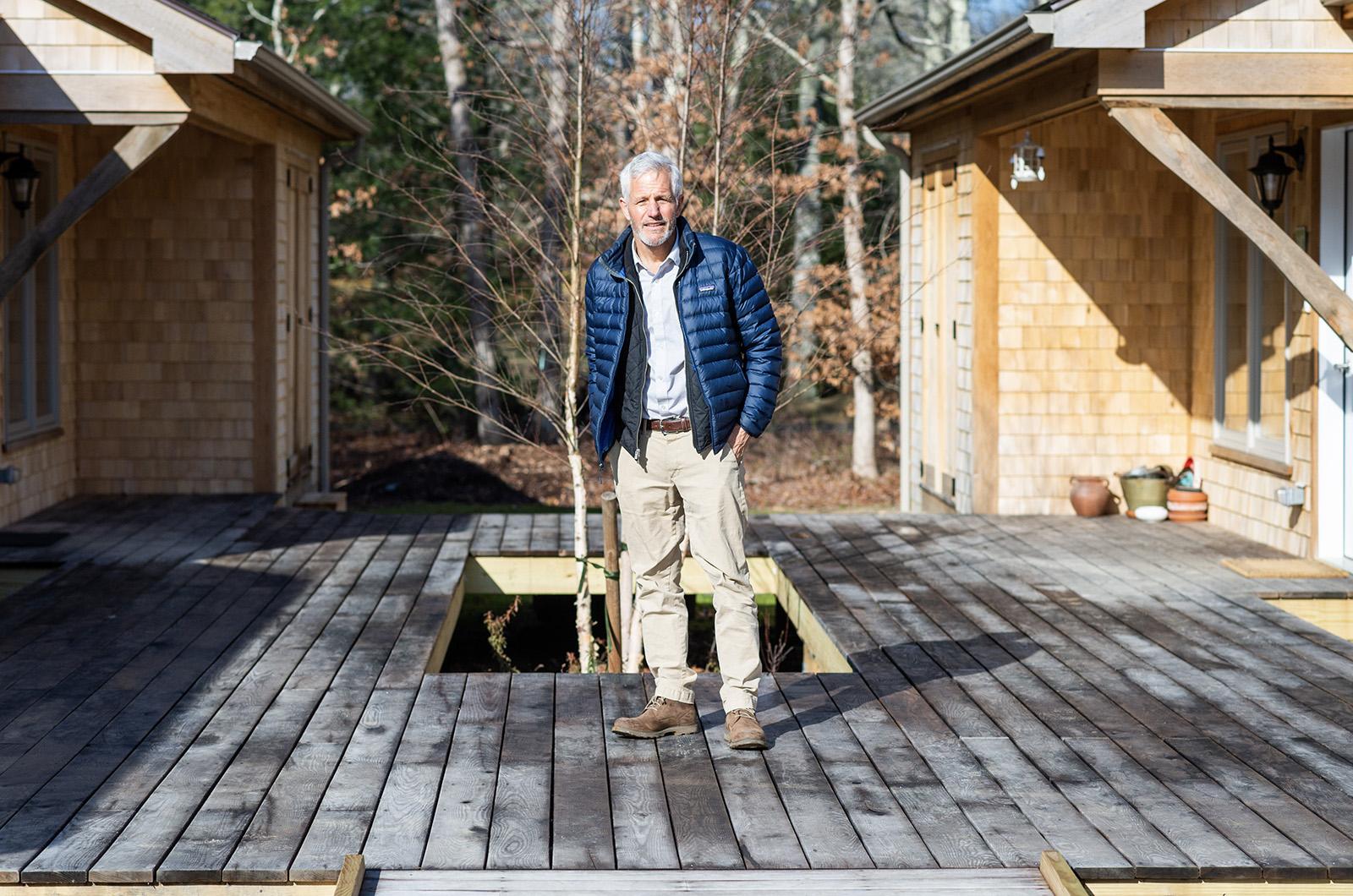The refrain is familiar. Despite valiant efforts to create more affordable housing on Martha’s Vineyard, the gap between need and availability continues to widen.
With several new affordable home developments now completed, plus deed restrictions and other projects, there are about 340 units of affordable housing on Martha’s Vineyard for people making under 80 per cent of the area median income as of 2020. Many more are being added as the Island sees some of the largest projects in recent memory come before planning agencies.
But several housing leaders on the Island said that even with the addition of affordable housing units from the Island Housing Trust, the towns and others, the Vineyard is struggling to keep pace with the conversion of homes to short-term rental or summer homes, and there needs to be more effort put into fighting the crisis before the Island’s median home price of $1.45 million continues to climb.
“What was once attainable for a middle-income household is no longer an option,” said Philippe Jordi, executive director of the Island Housing Trust. “(The need) is clearly growing in terms of scope.”
In a series of articles over the next few weeks, the Gazette will look at what has been done to address the lack of affordable housing on the Island, what is actively in the pipeline and what other resort communities have done to address a similar problem.
One target the Vineyard has firmly in its crosshairs is the creation of an Island-wide housing bank. All six towns have petitioned the state to allow them to create the new proposed housing fund, which would be paid for by a two per cent transfer fee on most real estate transactions over $1 million.
Whether or not the Housing Bank or other legislation passes to provide new funding for housing development, Laura Silber, the housing planner at the Martha’s Vineyard Commission, said the tide won’t start to turn until the six Island towns start seeing year-round housing as infrastructure, like roads, bridges and other town necessities.

“As an Island, year-round housing as infrastructure is not a place we have arrived at unilaterally,” said Ms. Silber. “There’s still a concept here that people need to pull themselves up by the bootstraps . . . Nobody has bootstraps that long anymore.”
In the past 20 years, the Island Housing Trust has set up about 170 units of affordable housing across the Island and is looking to add another 140 units in the next few years.
Meshacket Commons, a trust project, plans to bring 36 affordable units to Edgartown; Kuehn’s Way, a development in Vineyard Haven, added 20 units; Southern Tier, a project planned for Oak Bluffs, could inject as many as 60 units.
These are some of the largest affordable housing projects in recent memory on the Island, but that influx of housing won’t be enough to save many workers, families and residents from having to decide if they can make a living seven miles out to sea.
Hundreds of homes have dropped out of the Island’s year-round housing stock, meaning the big strides in housing production along the horizon are really just maintaining the front lines.
Between 2010 and 2019, the total number of housing units on the island increased by 4.2 per cent, but the year-round occupied housing stock decreased by 8.2 per cent, or by 603 units.
According to a Martha’s Vineyard Commission study released in 2021, seasonal units increased by 15.4 per cent, rising from 9,253 units to 10,681.
“There’s not much on the market to begin with, but what is (left) is being bought up quickly,” said Mr. Jordi. “We’re losing ground.”
Residents caught in the shuffle say they often find themselves on long housing waiting lists or frantically calling their entire rolodex to try and find a place to live.
Abby Bender is a dance instructor and choreographer on the Island who regularly struggles to find housing in the off-season between stays at her family’s non-winterized Oak Bluffs home.
Last week, she participated in the event, Martha Goes to Beacon Hill, organized by the Coalition to Create the Martha’s Vineyard Housing Bank, entreating legislators at the State House in Boston to pass legislation to help create the Island-wide housing bank.
Although Ms. Bender herself is housing insecure, she said she knows many others in far more precarious positions.
“Every time a new affordable housing unit opens up, there’s about 25 people I email right away,” she told the Gazette in Boston.
There are actually fewer affordable housing units on the Vineyard than there were only a few years, if using the strictest definition of affordable housing.
In 2013, there were 411 subsidized housing units on the Vineyard for people who make 80 per cent of the area median income. When the commission study was done in 2020, there were 339.
One of the strategies that has been used to secure affordable housing has been placing affordability restrictions on some new housing projects. These can often be rented out to people who have certain incomes.
Some of those restrictions have expired or are set to run out soon. Restrictions on 40 units at Hillside Village, a senior housing complex in Tisbury, are listed to expire in 2025. Nearly 250 subsidized housing units’ restrictions on affordability are expected to expire by 2057, while only eight subsidized housing units have been added to the Vineyard between 2013 and 2020.
While worrisome, housing officials note that affordable housing on the Island often extends past 80 per cent of the area median income, the state’s definition of affordable housing, and people here making up to 150 per cent of area median income are also struggling.
Due to the high cost of housing on the Vineyard and Nantucket, the state gave both islands special allowances to put permanent deed restrictions on properties for the higher income bracket.
According to the commission’s 2020 study, Vineyard communities have produced 166 housing units for people who make between 80 per cent and 150 per cent of area median income.
But the Vineyard towns have not dedicated the kind of money Nantucket has to the issue. Voters on the neighboring island will consider a $6.5 million override at town meeting this year to help fund housing efforts on Nantucket.
Since 2019, voters have supported approximately $70 million in funding for year-round housing, said Tucker Holland, the town’s municipal housing director, a position that has no equivalent in any Vineyard town.
“I think there is a growing view here that housing is infrastructure,” he said. “It is unquestionably the number one issue confronting the community today and has been for several years.”
Some Vineyard towns are also not taking the maximum tax revenue on short-term rentals and other lodgings allowed by the state, a strategy other resort towns have used and put directly towards housing.
Some are hopeful that momentum may shift and make Island life a little easier. Nearly 200 Vineyarders went to the state capitol last week to call for the creation of an Island housing bank fund, and town committees are starting to look at other ways to make housing more affordable.
Suvarna Maya, a single mother who works as a server in Oak Bluffs, has been living on the Island on and off since 2019. In that time, she’s stayed with friends, had rentals fall out from under her and had the all-too-common experience of frantically texting dozens of friends in hopes that someone knows of an open room.
Ms. Maya, who recently had to leave a rental this spring, said it’s a struggle to continue to live on the Island; she’s on several waiting lists for affordable housing and there have been times when she wonders if she should bother unpacking her belongings upon arriving in a new living situation.
Constantly thinking about finding a new seasonal rental can be mentally and emotionally taxing, but Ms. Maya tries to stay optimistic.
“I do have faith that this community can come together and that this can be solved,” she said.
Brooke Kushwaha contributed to this report.









Comments (9)
Comments
Comment policy »